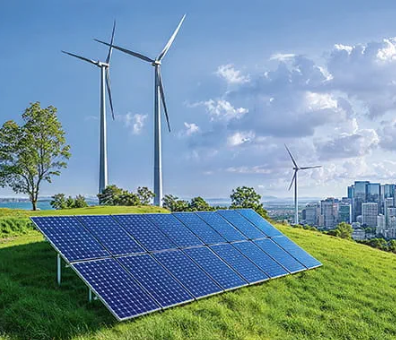Dhaka, 15th Oct, 2025: The government has introduced a landmark policy easing investment rules for renewable power generation, dismantling long-standing barriers and opening the sector to both local and foreign investors.
The new framework, titled “Enhancement of Private Participation in Renewable Energy-based Power Generation,” allows private companies to establish Merchant Power Plants (MPPs), sell electricity directly to consumers, and access the national grid.
The move ends the Power Development Board’s (PDB) decades-long monopoly as the sole buyer and distributor of electricity—ushering in a market-driven energy system for the first time in Bangladesh.
Under the policy, investors can now negotiate prices, choose customers, and form Special Purpose Vehicles (SPVs) to operate renewable power plants.
“This is a landmark and visionary initiative that will open immense opportunities for private and foreign investment in clean energy,” said Mostafa Al Mahmud, President of the Bangladesh Sustainable and Renewable Energy Association (BSREA). “It introduces a new level of competition and transparency in our power sector.”
Until now, all producers were bound to sell electricity to the PDB under fixed Power Purchase Agreements (PPAs). The new policy replaces that with a merchant model, enabling producers to sell power on the open market and allowing industries to buy electricity directly from multiple suppliers.
Export-oriented industries—particularly textiles and garments—are expected to benefit most, as they face growing international pressure to reduce carbon emissions.
With a national target of sourcing 20% of electricity from renewables by 2030, the government hopes the reform will attract major global investors in sustainable infrastructure.
“Bangladesh has made a bold pivot,” said a senior official at an international investment firm in South Asia. “The removal of sovereign guarantees and introduction of market-based pricing make it an appealing destination for green investors.”
Foreign investors will be allowed to form SPVs under Bangladeshi law, with all projects required to meet national grid standards. The Bangladesh Energy Regulatory Commission (BERC) will regulate grid access, technical standards, and transmission fees on a non-discriminatory basis.
However, analysts caution that implementation will determine whether the policy achieves its goals.
“Policy is only the first step,” said Dr Khondaker Golam Moazzem, Research Director at the Centre for Policy Dialogue (CPD). “Supporting rules, fast approvals, and clear leadership are critical. Without these, investor interest may slow.”
He also stressed the need for transparent dispute resolution mechanisms and competitive tariff structures to ensure a level playing field.
Currently, solar and wind power contribute only 3% (829 MW) of Bangladesh’s total grid-connected capacity of 27,742 MW. The government plans to rapidly scale up renewable generation over the next five years through expanded private participation.
Under the new framework, state-run distribution companies will still be permitted to purchase up to 20% of an MPP’s output, but without government guarantees—signaling a gradual shift toward a fully market-driven model.
The policy represents a strategic turning point in Bangladesh’s energy roadmap, positioning the country as a potential model for other developing nations pursuing clean power through private investment.
“This is about more than energy,” said BSREA President Mostafa Al Mahmud. “It’s about climate resilience, industrial growth, and building a reliable green future.”
As implementation begins, global investors will be watching closely to see whether Bangladesh can deliver on its promise of a competitive, transparent, and sustainable renewable energy market.




